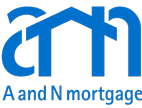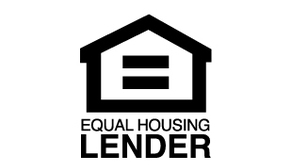With loan interest rates continuing to climb, many home buyers are considering opting for an adjustable-rate mortgage, or ARM, over a fixed-rate loan. This provides flexibility in the interest you’ll pay throughout your loan’s term. Still, you should research adjustable-rate mortgage pros and cons before agreeing to this type of home loan. Discover some of the top advantages and disadvantages of ARMs in this in-depth guide by experts at A and N Mortgage.
Understanding Adjustable-Rate Mortgages
Before we get into the benefits and drawbacks of adjustable-rate loans, it’s important to understand how does arm mortgage works. As the name implies, ARMs feature interest rates that fluctuate over time. This doesn’t mean you’ll pay 6% interest during the first month of homeownership and 2% the following month.
With an adjustable-rate mortgage, your interest rate will remain the same for the first few years. Loan details vary for each borrower, but many ARMs have a fixed interest rate for the first five, seven, or even ten years of the mortgage. Sometimes, homeowners lose their fixed rate after three years of mortgage payments.
The interest rate then continues to change after the initial period. Loans typically see interest rates adjust either every six months or once per year. You can figure out the timeline for your loan based on the numbers lenders use to label it.
For example, 5/6 ARM means that you’ll pay a fixed interest rate for the first five years, adjusting rates every six months after that period. A 10/1 loan refers to an ARM with an initial 10-year payment period with the same interest rate followed by changing rates yearly.
How Lenders Determine Interest Rates Throughout Your Loan’s Term
The way that lenders figure out interest rates makes for a few different adjustable-rate mortgage pros and cons. How exactly do experts decide how much you’ll pay in interest? The process involves a few different components, outlined below.
Chosen Market Index
Lenders apply an interest rate to loans using a market index that reflects the industry’s current value. Many banks and lending teams use the Secured Overnight Financing Rate or the U.S. Prime Rate to determine the interest rate of an ARM. They’ll add a margin that doesn’t change throughout the loan’s term, though your monthly mortgage payments may increase or decrease depending on the chosen index value.
Additional Read: Do Biweekly Mortgage Payments Make Sense For You?
Cap Structures
With each adjustment, you won’t have to worry about major fluctuations in your interest rate. Lenders place caps on adjustable-rate mortgages that limit how much the interest rate can rise over the following periods:
- During the first adjustment after your initial payment period
- During every subsequent interest adjustment
- Over the entire loan term
Say you secure a 10/1 loan with a 2/3/5 cap structure. This means you’ll have 10 years with a fixed interest rate that will adjust once per year. The cap structure indicates that your interest rate won’t increase more than two points for the first adjustment, more than three points for other yearly adjustments, and more than 5% over the remainder of your loan term.
Adjustable-Rate Mortgage Pros and Cons
Now that you better understand how variable-rate mortgages work, it’s time to get into their pros and cons. Assessing the positives and negatives of ARMs can help you determine if this is the type of loan you want to secure or if another option suits you best.
Check out the top advantages and drawbacks of variable-rate mortgages below.
Benefits of Adjustable-Rate Mortgage
If you decide to borrow home financing from a lender using a variable-rate mortgage, you can reap some unique benefits compared to other types of loans. This loan can give you the following advantages:
- Lower introductory rates: Many lenders give borrowers a lower interest rate when they opt for an ARM over a fixed-rate mortgage to account for future adjustments and possible increases. This means you can pay less for the first few years of owning your home.
- Reduced monthly payments: When you enter the adjustment period of your loan, you could end up with a reduced mortgage payment depending on the current market index value. The changing market plays a vital role in adjusting-rate mortgage pros and cons.
- Flexibility with future home sales: Do you only plan on being in your home for a few years? You can sell and secure new housing before your interest rate changes as long as you do so within your initial fixed-rate period.
Drawbacks of Having an Adjustable-Rate Mortgage
Don’t move forward with a home loan unless you understand all of the adjustable-rate mortgage benefits and risks. Despite impressive advantages, variable-rate mortgages have drawbacks as well.
One of the biggest risks you take by opting for this loan is ending up with a higher monthly mortgage payment as quickly as three years into your loan term. Unexpected changes in the market index value could cause your interest rate to rise several points with each adjustment. If you’re hit with a spike in your interest rate when you’re struggling financially, it could jeopardize your housing situation.
Additional Read: How to Lower Your Mortgage Interest Rate
Always review the loan conditions with your lender before securing a mortgage. Some charge penalties to those who sell their home before paying off the loan or choose to refinance for a lower interest rate. These penalties aim to make up for the rising interest rates that you’d incur down the road.
You could take advantage of an interest-only ARM to enjoy small payments for a while but then face a drastic increase in your monthly payment amount. This type of loan involves making only interest payments for a set period before your home loan payment, which includes both interest and principal.
Homebuyers Who Benefit Most From Variable-Rate Mortgages
While anyone can experience both the pros and cons of adjustable-rate mortgages, some homebuyers can greatly benefit from securing this type of mortgage. Those who don’t plan on staying in their homes for more than five to ten years can escape rising interest rates, while anyone looking to refinance in the future could also save money when the market rates drop.
This home loan also proves advantageous to young professionals who will move up in their careers. Even with higher interest rates on the horizon, they’ll have time to save and earn more money to put toward their mortgage each month. By the time their fixed-interest period ends, they should be financially secure to adapt to their new interest rate.
Alternatives to Adjustable-Rate Mortgages
Take into consideration all adjustable-rate mortgage pros and cons before you move forward with any home financing. You should also explore different types of home loans to get a better idea of which mortgage option works best for you. Aside from a variable-rate mortgage, common types of home loans include:
- 15-year fixed-rate loan: If you want to pay off your loan quickly and enjoy a lower interest rate, opt for a fixed-rate mortgage with a 15-year term. The monthly payments will be larger due to principal payments, but lenders typically charge less interest than other loans.
- 30-year fixed-rate loan: Fixed-rate loans offer both 15-year and 30-year terms. The latter ensures that you won’t face changes in interest rates for several decades. This proves especially beneficial for anyone scared of a volatile market leading to higher interest rates.
- Government-backed loan: The government offers special home loans for select individuals, such as veterans and those with low credit scores. These mortgages usually have less strict requirements for down payments and may supply you with a lower interest rate.
Consult a professional lender if you’re interested in buying a home but need to know which mortgage suits you best. They can help you find a suitable home loan with agreeable terms for your current financial situation.
Contact Lending Experts at A and N Mortgage for More Information
Given the many adjustable-rate mortgage pros and cons, is an adjustable-rate mortgage best for you, or should you opt for a fixed-rate loan? The lending specialists at A and N Mortgage can help you find the right home loan based on your finances and future outlook. We take pride in helping Chicago locals become homeowners with customized lending solutions for every borrower.
For a rate quote or more mortgage resources, contact us today at (773) 305-LOAN. Request more information today.







